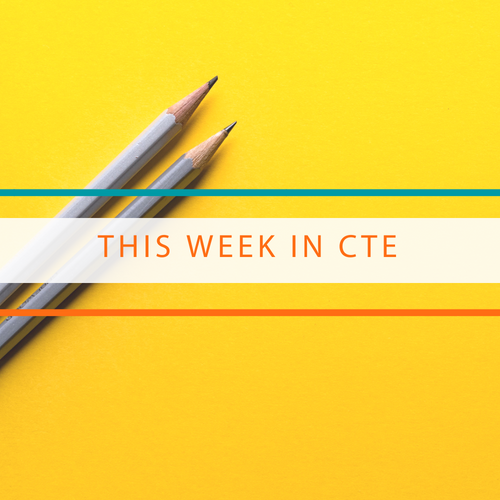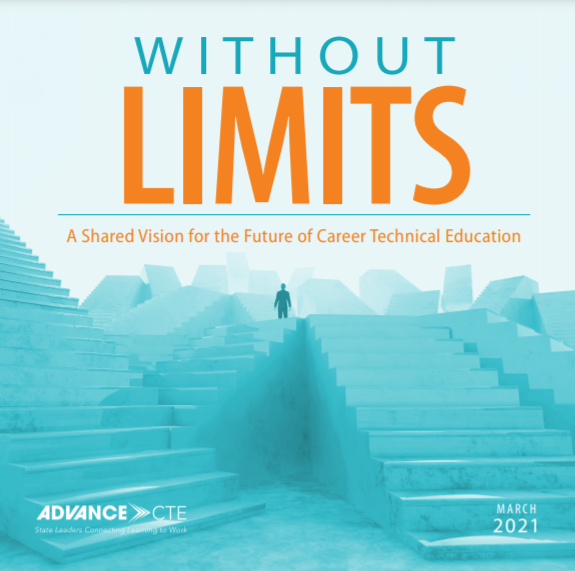This summer, Advance CTE is pleased to partner with experts from supporting organizations of Without Limits: A Shared Vision for the Future of Career Technical Education (CTE Without Limits) to conduct video panels to delve into four of the five foundational commitments that connect the vision principles.
Our second panel featuring the Association for Career Technical Education (ACTE), Education Strategy Group (ESG) and the National Alliance for Concurrent Enrollment Partnerships (NACEP) discussed the quality commitment across multiple dimensions, including program design, evaluation, instructors, work-based learning and credentials. Each panelist shared their insights on current progress and barriers to high-quality Career Technical Education (CTE), as well as short and long-term policy priorities to achieve consistent quality across all aspects of CTE.
There was widespread agreement on key action areas to create a culture of sustainable quality, including expanding data infrastructure to “rigorously evaluate” program quality in addition to widespread focus on learner outcomes; the use of Perkins V as a key state tool to scale effective practices and leverage data to identify priority investments in quality; and the importance of active industry support through professional development opportunities, equipment investments and more to ensure programs remain responsive and fully prepare learners for career success.
“The bottom line is CTE programs have to be valued by policymakers and resourced in order to be high-quality and aligned with business and industry needs.” – Alisha Hyslop, Senior Director Public Policy, Association for Career Technical Education
“The renewed spotlight on CTE is extremely encouraging, but has also led to sometimes difficult [and necessary] conversations about the legacy of CTE, particularly for low-income students and students of color, and brought emphasis on unpacking what quality means for each key pillar of CTE programs.” – Dr. Emily Passias, Director of Career Readiness, Education Strategy Group
“Perkins V and initiatives like this vision make it really clear what the vision for collaboration and quality in CTE looks like and should look like. So, the best solution at the federal level is to address the intense need for increased funding.” – Amy Williams, National Alliance for Concurrent Enrollment Partnerships
Thank you to Advance CTE’s Dan Hinderliter for serving as a facilitator and to our panelists for your expertise and insights.
Watch the previous episode that discusses steps CTE leaders can take to prioritize diversity, equity and inclusion in realizing CTE Without Limits. Future episodes will explore meaningful public-private partnerships and actionable data.
Visit our vision page to read the full vision, access vision communication and implementation resources, and view recordings of our summer Lunch and Learn webinar series focused on the five vision principles. Vision the Learning that Works Resource Center for tools to evaluate and advance equity in CTE systems and programs.
Stacy Whitehouse, Senior Associate Communications and State Engagement


 Developed with input from nearly 200 national, state and local education and workforce development leaders and supported by over 40 national organizations,
Developed with input from nearly 200 national, state and local education and workforce development leaders and supported by over 40 national organizations,  In March 2021, Advance CTE, with the support of over 40 national organizations, released
In March 2021, Advance CTE, with the support of over 40 national organizations, released 